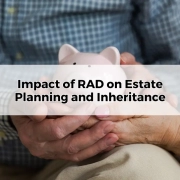Aged Care in Rural vs. Urban Areas: Financial Considerations
Table of Contents
ToggleNavigating the financial landscape of aged care requires a comprehensive understanding of the associated costs, government support mechanisms, and logistical challenges. While the fundamental principles remain consistent, the financial considerations for aged care in rural areas contrast significantly with those in urban environments.
Cost Differences Between Rural and Urban Aged Care
The cost of aged care varies considerably depending on location. Urban areas often have higher accommodation fees due to elevated property values and demand, while rural facilities may have lower base fees but increased costs for specific services. Understanding these cost discrepancies is crucial when planning for aged care.
Availability of Aged Care Facilities
Urban centres tend to have a greater density of aged care facilities, providing more options and competitive pricing. Conversely, rural areas may have limited availability, leading to higher demand for fewer places, which can impact affordability and accessibility.
Government Funding and Support Programs
The Australian Government offers subsidies and financial assistance for aged care, but access can vary based on location. Regional and remote areas may receive additional funding through programs such as the Rural and Remote Supplement, which assists in bridging financial gaps.
Home Care vs. Residential Care Costs
Many Australians prefer to age at home, but the feasibility depends on financial and practical factors. Urban home care services are generally more accessible and competitively priced, whereas rural areas may have limited provider options, leading to higher travel costs for service delivery.
Workforce Challenges and Financial Implications
Aged care providers in rural areas often struggle with workforce shortages, impacting service availability and cost. Urban centres benefit from a larger labour pool, leading to more stable service provision and potentially lower costs due to competition.
Travel and Accessibility Costs
For rural residents, accessing aged care services often entails additional travel expenses. Whether it be for medical appointments, specialist care, or visiting family in distant aged care
facilities, these costs can accumulate significantly over time.
Quality of Care and Financial Considerations
While urban aged care facilities may offer a broader range of services due to economies of scale, rural providers may offer more personalised care but at a higher per-person cost. Assessing the financial trade-offs is crucial for making an informed decision.
Financial Planning for Aged Care in Different Regions
Strategic financial planning is essential to manage aged care costs effectively. Those in rural areas may need to allocate additional resources for travel and service accessibility, while urban residents may need to prepare for higher accommodation fees.
Selling Property to Fund Aged Care
Many individuals fund aged care by selling their home, but market conditions differ between rural and urban areas. Property liquidity and valuation disparities can significantly impact financial outcomes when transitioning into care.
Superannuation and Pension Considerations
Understanding how superannuation and pensions contribute to aged care funding is crucial. Financial strategies may differ depending on whether an individual resides in a high-cost urban
area or a more affordable rural setting.
Estate Planning and Intergenerational Wealth Transfer
Estate planning is a critical component of aged care financial strategy. Different considerations apply depending on whether assets are located in urban or rural regions, particularly concerning
land holdings, business succession, and tax implications.
Aged Care in Rural Vs. Urban Areas
The financial aspects of aged care differ markedly between rural and urban environments. Identifying and planning for these variances ensures a smoother transition and greater financial
security for individuals and their families. Seeking professional financial advice tailored to specific geographic and personal circumstances is imperative for optimising aged care outcomes.









